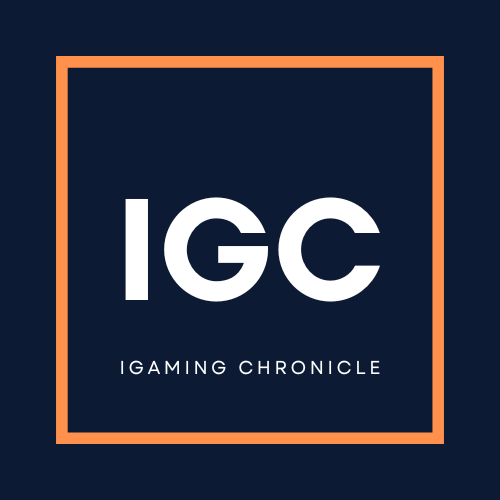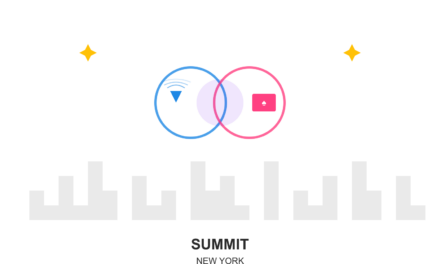SCCG Management, the iGaming industry’s self-proclaimed “trusted advisor,” has announced yet another partnership, this time with Bragg Gaming Group, a respected B2B content and technology provider. The deal centers on distributing Bragg’s Player Account Management (PAM) platform—a robust, omnichannel solution for managing casino, sportsbook, and lottery verticals—across SCCG’s sprawling global network. But with a partner list exceeding 130 providers, sprawled across 35+ pages on their website, SCCG’s latest move begs a brutal question: is this consultancy still an independent voice, or has it become a glorified clearinghouse for iGaming providers, peddling influence under the guise of advice?
The Bragg Deal: A Solid Play, But Whose Game?
Let’s start with the deal itself. Bragg’s PAM platform is a heavyweight, designed to be the central nervous system for modern gaming operations. It integrates casino, sportsbook, and lottery verticals into a single account and wallet, with features like automated KYC processes, advanced fraud prevention, and data-driven customer engagement tools. For operators in high-growth markets like Africa, Latin America, and North America’s tribal gaming sector, where regulatory complexity is a constant hurdle, this kind of tech is a lifeline. Bragg’s CEO, Matevž Mazij, called the partnership a “pivotal step,” emphasizing SCCG’s “unparalleled global network” as the perfect vehicle to push their platform into new territories.SCCG’s Founder and CEO, Stephen Crystal, was equally effusive, praising Bragg’s “advanced and trusted” solution. Under the agreement, SCCG will tap its 130+ partner network to distribute the PAM platform, focusing on emerging markets where compliance and scalability are non-negotiable. On the surface, it’s a textbook win-win: Bragg gets access to new operators, and SCCG burnishes its reputation as a dealmaker. But dig deeper, and the cracks start to show.
SCCG’s Partner Bloat: A Consultancy or a Middleman?
SCCG Management has built its brand on guiding operators through the iGaming jungle—regulations, market entry, tech integration, you name it. But with a partner roster that reads like an iGaming phonebook, encompassing everyone from Bet365 to niche blockchain startups, SCCG’s claim to independence is starting to look like a bad joke. A consultancy with 130+ partnerships isn’t an advisor; it’s a broker, juggling conflicts of interest with the finesse of a circus act.
The numbers are staggering. SCCG’s website proudly flaunts its partner list, a sprawling catalog that spans game developers, payment processors, compliance tools, and now Bragg’s PAM platform. This isn’t strategic curation—it’s a fire sale. When you’re partnered with virtually every major player in the industry, how do you maintain objectivity? If an operator asks SCCG for advice on a PAM solution, can they trust the recommendation is driven by merit, or is it just the latest deal in SCCG’s overstuffed portfolio?
The optics are damning: SCCG’s business model thrives on volume, not discernment.Let’s be clear: Bragg’s platform is a strong contender. Its compliance tools and scalability make it a solid fit for emerging markets, where operators face intense regulatory scrutiny. Africa’s iGaming boom, Latin America’s untapped potential, and the tribal gaming markets’ unique jurisdictional challenges all demand sophisticated tech. SCCG’s network could, in theory, be the perfect conduit. But when you’re simultaneously pushing dozens of other providers—many with overlapping offerings—the line between consultancy and salesmanship blurs. Operators deserve advisors who prioritize their needs, not a middleman hawking the flavor of the month.
Follow the Money: Incentives and Conflict
To understand SCCG’s drift, we need to follow the money. The iGaming industry is a high-stakes ecosystem where trust is hard-won and easily lost. Consultancies like SCCG are supposed to be impartial navigators, offering operators clarity amid the chaos of regulations, tech stacks, and market dynamics. But SCCG’s partnership frenzy suggests a different motive: revenue through deal volume. Each new agreement, like the one with Bragg, adds another revenue stream, but it also tightens the web of obligations SCCG must navigate.This isn’t speculation—it’s systems thinking. When a consultancy ties itself to 130+ providers, its incentives shift from impartial advice to maximizing partner exposure. The result? A potential conflict of interest that undermines the very trust SCCG claims to uphold. If SCCG recommends Bragg’s PAM over, say, Playtech’s or GAN’s, is it because Bragg’s tech is superior, or because it’s the freshest contract? Operators, especially in emerging markets where stakes are high and margins thin, can’t afford to gamble on biased advice.Compare this to Bragg’s approach. Their strategy is focused: build a top-tier PAM platform and partner selectively to expand its reach. They’re not trying to be everything to everyone, unlike SCCG, which seems to want a piece of every pie in iGaming. This divergence highlights the deeper issue: while Bragg plays a disciplined game, SCCG’s scattershot partnerships risk diluting its credibility.
The Industry’s Blind Spot: Trust as Currency
The iGaming industry is no stranger to ethical gray zones. Affiliate marketing scandals, biased platform reviews, and opaque revenue-sharing deals have long plagued the sector. SCCG’s partnership model, while not illegal, treads dangerously close to these pitfalls. By positioning itself as both advisor and distributor, SCCG invites scrutiny about its motives. Are they serving operators, or are they serving their partners? The answer, increasingly, seems to be the latter.This isn’t to dismiss SCCG’s contributions. Their network is undeniably powerful, and their ability to connect providers like Bragg with operators in emerging markets is no small feat. But power comes with responsibility. If SCCG wants to maintain its reputation as a trusted advisor, it needs to address the elephant in the room: its sprawling partner list is a liability, not an asset. A consultancy that partners with everyone risks being trusted by no one.
The Path Forward: Reform or Reckoning?
The SCCG-Bragg partnership will likely deliver short-term wins. Bragg’s PAM platform is well-suited for the markets SCCG is targeting, and operators could benefit from its compliance and scalability features. But the bigger story isn’t this deal—it’s SCCG’s identity crisis. If they continue down this path, amassing partners like a dragon hoarding gold, they risk alienating the operators who rely on their guidance.To reclaim its credibility, SCCG needs a hard reset. Cull the partner list. Prioritize quality over quantity. Commit to transparency about how recommendations are made and how conflicts are managed. Without these steps, SCCG’s claim to being a “trusted advisor” will ring increasingly hollow, and operators will start looking elsewhere for clarity in an already murky industry.For now, the Bragg deal is a reminder of SCCG’s reach—and its risks. Operators should approach this partnership with eyes wide open, and SCCG should take a long look in the mirror.
In iGaming, trust is the ultimate currency, and SCCG’s spending it faster than they think.
Disclaimer: This article and its accompanying images may have been enhanced using AI tools to ensure smoother content delivery and visual appeal.





